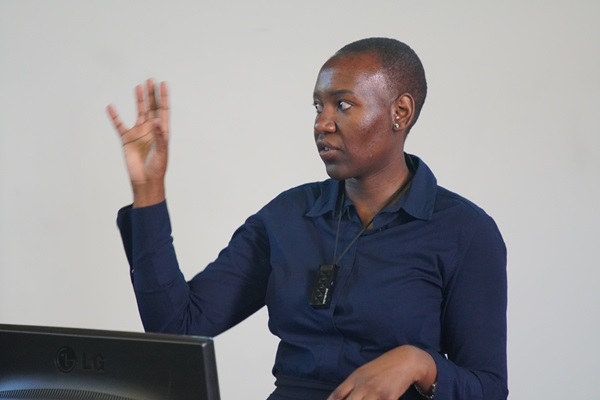Guest Lecture at NWU Guides Students in Mastering Strategic Thinking
On Tuesday, 7 May, students at the Potchefstroom Campus of the North-West University (NWU) studying for a Bachelor of Commerce (BCom) honours in Management Sciences with Marketing and Management Sciences and Business Management were treated to a thought-provoking guest lecture. The lecture was delivered in an intercampus synchronic format, involving students from all three campuses, and it was presented as part of the advanced Strategic Management module.
The lecture aimed at providing students with the necessary practical understanding of strategic management, digital transformation, market analysis and innovation strategies. It functioned as a brief for an industry assignment that the students have to complete. The assignment entails the students functioning as junior consultants and developing a strategic plan for a public listed company.
Miss Tshifhiwa Sidogi, a senior consultant at Deloitte Consulting’s strategy and business design division, was passionate about sharing her expertise in leadership and business transformation. The students gained first-hand knowledge about strategy consulting.
Strategic thinking to drive sustainable business growth
Sidogi’s presentation empowered the students to understand the significance of a strategy and the critical role it plays in the growth of an organisation. “Having a strategy is essential because it clarifies an organisation’s purpose, and it guides decisions and actions within the business. The core of a strategy is to set up the business to be profitable today and to ensure sustainable future growth, and each strategy should have an implementation map,” Tshifhiwa added.
An implementation roadmap is an instrument used to put a strategy into action and to keep track of its progress. It explores topics ranging from a defined path forward, actionable next steps and ongoing monitoring.
Sidogi further underscored the distinct levels of a strategy that encompass the corporate, strategic group, and business unit strategy. On the basis of her extensive experience across various industries, she went on to emphasise the significance of a winning aspiration and how it differs from the mission and purpose of an organisation.
“The winning aspiration is a future-orientated goal that focuses on winning and providing a sense of motivation for the organisation to reach new heights. It should specify that an organisation seeks to add value for its customers in a unique manner that distinguishes it from its competitors.”
Sidogi declared that operationally efficient companies use their current assets to develop innovative strategies that will create a pathway to enter new markets. According to Sidogi, companies can enter new markets by using their existing footprint, which will improve their competitive advantage.
She outlined the elements that constitute a good growth strategy, and they combine to actively seek to integrate organisational, industry and geo-political trends with the generation of new and innovative growth approaches. Engaging with key stakeholders to ensure they are given information and the space to make strategic choices for an organisation, and developing future-orientated strategies are some of the other elements.
Sidogi said an organisation’s capabilities are determined by the industry it operates in, and it is crucial that businesses have the appropriate operational frameworks in place to promote resources efficiently.

